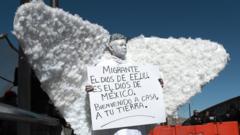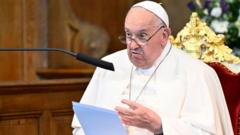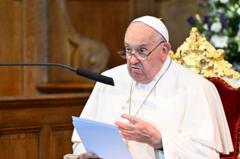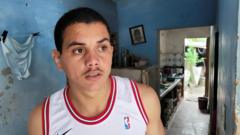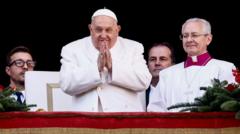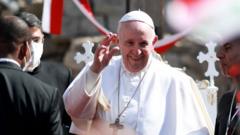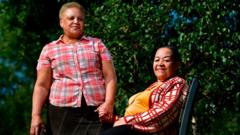In a landmark Vatican summit that lasted for a month, Pope Francis has advocated for a greater leadership presence for women within the Catholic Church. However, the anticipated breakthrough—ordaining women as priests—was not achieved. This synod marks the conclusion of a four-year consultation process aimed at gathering insights from Catholic communities worldwide.
**Vatican Synod Concludes with Mixed Reactions on Women's Roles in the Church**
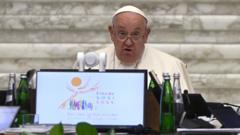
**Vatican Synod Concludes with Mixed Reactions on Women's Roles in the Church**
The recent Vatican summit calls for increased leadership roles for women, but stops short of ordination, leaving many both hopeful and disappointed.
During the summit, Pope Francis permitted nearly 60 women to participate in the conference alongside a total of 368 voting delegates. Each of the synod members considered 151 proposals, all passing with a required two-thirds majority. Despite this, a significant number of voters opposed the initiative to expand leadership roles for women, highlighting the deep-seated traditionalism that still permeates the Church's all-male clergy.
Many advocates had hoped the synod would endorse women taking on deacon roles—ordained ministers permitted to officiate certain sacraments. While the final documents indicated no barriers to women's participation in leadership roles, it explicitly refrained from endorsing female deacon ordination. As reformists sought a clearer stance on inclusivity towards the LGBT community, the discussions yielded vague references and no explicit guidance, which left some feeling marginalized.
Despite the cautious optimism expressed by the Pope, conservative factions within the Church have openly criticized the summit from its inception. Detractors argue that consultations involving laypersons undermine traditional clerical authority. The Pope, at 87, sees these dialogues as essential for a modernizing Catholic Church, prioritizing grassroots involvement over clerical views alone.
Fr Timothy Radcliffe, the chief spiritual advisor during the summit, emphasized the value of building relationships among delegates, despite differing views on contentious issues such as LGBT inclusion. He optimistically noted the power of friendship formed through dialogue but recognized that the practical outcomes of the summit remain uncertain.
As the Church navigates these complex discussions, observers express concern that the synod may not enact the bold reforms that many had hoped for, leaving numerous participants still feeling distanced from the Church’s core.
Many advocates had hoped the synod would endorse women taking on deacon roles—ordained ministers permitted to officiate certain sacraments. While the final documents indicated no barriers to women's participation in leadership roles, it explicitly refrained from endorsing female deacon ordination. As reformists sought a clearer stance on inclusivity towards the LGBT community, the discussions yielded vague references and no explicit guidance, which left some feeling marginalized.
Despite the cautious optimism expressed by the Pope, conservative factions within the Church have openly criticized the summit from its inception. Detractors argue that consultations involving laypersons undermine traditional clerical authority. The Pope, at 87, sees these dialogues as essential for a modernizing Catholic Church, prioritizing grassroots involvement over clerical views alone.
Fr Timothy Radcliffe, the chief spiritual advisor during the summit, emphasized the value of building relationships among delegates, despite differing views on contentious issues such as LGBT inclusion. He optimistically noted the power of friendship formed through dialogue but recognized that the practical outcomes of the summit remain uncertain.
As the Church navigates these complex discussions, observers express concern that the synod may not enact the bold reforms that many had hoped for, leaving numerous participants still feeling distanced from the Church’s core.



